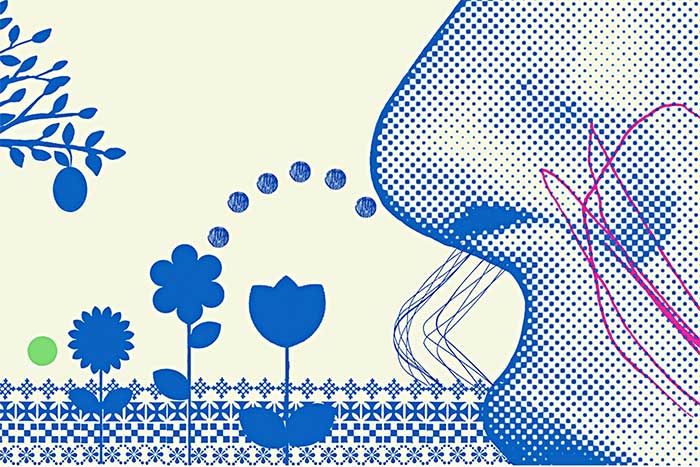It may come as no surprise that the sense of smell is closely linked to memory. “People often say that the sense of smell evokes memories so vividly that they feel as if they are experiencing the event all over again. The smell of grandma’s pasta sauce makes them feel at home, enjoying a delicious meal,” says Dr. Theresa L. White, a professor and chair of the psychology department at Le Moyne College in Syracuse, New York.
This year, several studies have closely examined the relationship between scent and memory. A study by Northwestern Medicine published in the journal Progress in Neurobiology discovered the neurological basis for how the brain allows scents to trigger powerful memories.
Researchers from the University of California, Irvine found specific types of neurons in the brain’s memory center responsible for acquiring new associative memories, which are memories activated by unrelated stimuli, such as scents.
The Olfactory System and the Brain
Dr. Pamela Dalton, an experimental psychologist and lecturer at the Monell Chemical Senses Center, states: “Our experiences with scents are tied to a person, a place, or an emotional state. When these are significant or salient events, the scent can become closely associated with memory—so much so that experiencing the scent again often revives the emotions or feelings originally felt,” Dalton explains.

The most prominent scents are those that are infrequently experienced.
The connection between emotional memory and scent appears to be stronger than other sensory experiences due to the privileged access of the central olfactory structures in the brain to the limbic system structures—such as the amygdala and hippocampus—associated with emotional regulation and emotional memory.
A Specific Type of Memory
A 2010 study published in the American Journal of Psychology found that scent-related memories are not necessarily more accurate, but they tend to evoke emotions more.
Typically, the most prominent scents are those that are infrequently experienced, so when we encounter them, they have a specific association. “They are often scents we experienced for the first time when we were younger,” Dalton says. However, she points out that because individuals’ experiences with scents are highly distinctive and personal, the actual ability to trigger olfactory memory can vary greatly from person to person.
White adds: “It’s worth noting that memories from specific periods or events from the perspective of the individual experiencing them are where the sense of smell is best connected to memory. For other types of memories, scent does not play as strong a role. For example, if I show you seven words and ask you to remember them, and then seven scents to remember, there’s no doubt you’ll remember the seven words better.”
White explains that associative memory can work with any sense, and olfaction is no exception. She states: “Imagine that you always relax in a bath scented with lavender at the end of the day. You would associate the smell of lavender with relaxation. This means that over time, when you smell lavender but are not in the bath, you will still feel relaxed.”
Harnessing the Power of Scent
Researchers have found that scents can play a role in activating memory, enhancing our ability to recall or recognize information.
In her study, Dalton asked participants to remember the face of a stranger along with various scents. She revealed: “The best recognition performance occurred when they were tested with the same scent that was present when they saw those faces. Other studies have confirmed similar findings, such as research showing that the presence of a scent can help a person recall that information.”
During this pandemic, it is natural for us to wonder whether the sense of smell has been affected in survivors of Covid-19, potentially leading to memory issues.
However, so far, there has been no specific research on the memory of individuals who lost their sense of smell (prior to Covid-19). Dalton states: “Loss of smell may mean that any olfactory memories cannot be revived and therefore, new memories cannot be formed.”
Hopefully, over time, we will understand all the causes of the loss of smell experienced by many individuals across all aspects of cognitive and emotional function, including memory.


















































